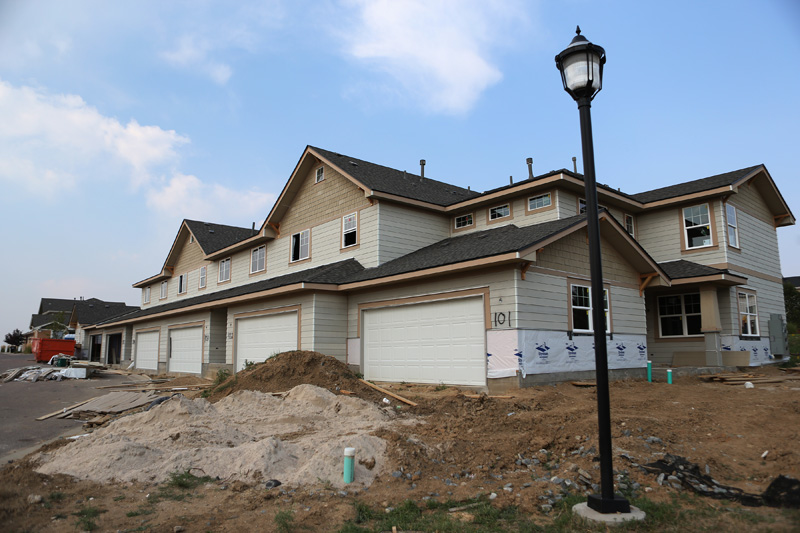
File Photo by Gabriel Christus/Aurora Sentinel
AURORA | New homes with lush front yards may soon become a rarity in Aurora, under a sweeping water conservation proposal by Mayor Mike Coffman that comes as staff recommend the city enact even tighter restrictions on watering in 2023.
“This proposal recognizes that the easy water rights in Colorado are all gone,” Coffman said. “A vote for this proposal is a vote to support a sustainable water policy for the future of our city.”
Front lawns planted with cool-season grasses like Kentucky bluegrass and fescue will be prohibited under the proposal, except on alley-loading properties where the backyard is too small for turf. Warm-weather grasses that need less than 15 inches of supplemental water per year, such as buffalo grass, will still be allowed.
All lawns will only be allowed to take up the lesser of 45% of the area of the yard or 500 square feet.
Turf will also be prohibited on new golf courses as well as road medians and other lawns planted for aesthetic reasons, but not on parks or recreation fields. Homeowners with noncompliant lawns won’t be forced to re-landscape, although the city does offer rebates of up to $3,000 for residents looking to trade thirsty grass for water-wise alternatives.
Coffman’s proposal also prohibits “the use of water in all public and private exterior ornamental water features and ponds.”
The mayor and city staff previously framed the ordinance in the context of growing demands on the Colorado River, which led the US Bureau of Reclamation to order river basin states to stop using 2-million to 4-million acre-feet of water within a year or else face mandatory cuts.
Much of the city’s water comes from the South Platte River Basin, also tapped by multiple demands, including a new demand for access to water from Nebraska.
On Monday, a majority of the group also endorsed an amendment initiated by Councilmember Curtis Gardner to hire a consultant to study how the ordinance impacted water use, water rates, home prices, new home construction and the legislative landscape in the metro area three years after the effective date.
Another successful amendment brought by Gardner changed the effective date of the ordinance, now Sept. 30, so that development plans submitted to the city after that date which include prohibited turf will not be accepted, although an exception may be made if the property is located next to a parcel whose plan was grandfathered in and a net water savings can be achieved regardless of turf.
The city has for several years limited grass in residential front yards to 1,000 square feet.
Residents’ ability to water their lawns is also limited under a four-tiered system that imposes tighter controls when drought is more severe. The city is currently on the fourth and least restrictive tier, Aurora Water spokesperson Greg Baker wrote in an email Wednesday.
Under the current watering rules, residents are allowed to water their lawns up to three days each week, but not between 10 am and 6 pm from May 1 to Sept. 30. Baker wrote that the city has formally contacted 220 customers for breaking the rules this year and informally contacted 270 more customers for suspected violations.
While no one has been fined this year, Baker said residents can be fined up to $500 and eventually have service disconnected, although he’s never seen a situation go that far.
Baker said a staff group has voted to recommend to the council that it step up drought restrictions starting in January, which would reduce the number of days lawns may be watered from three to two.
“In 2022, we collected less water than we anticipate using, forcing us to continue to draw down our reservoirs,” he said. “We are concerned that, (if) this coming winter isn’t any better than last winter for snow supply in the three river basins we collect our water from, we may need to declare an advanced drought stage.”
The council is scheduled to take a final vote on the measuresure Aug. 22; Coffeeman stressed that his proposal is not meant to be a comprehensive solution for water conservation in the city, and that the city is evaluating water use on city properties, among other efforts.
“This is not the end-all,” he said. “Tthis is merely one part of the effort, but there will be others.”